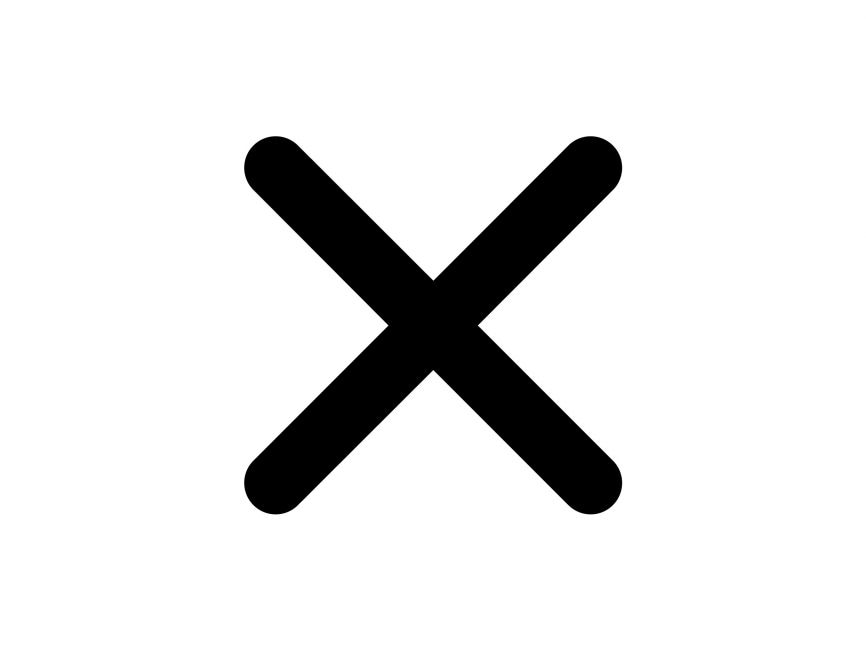- Overview
- About
- Syllabus
- Exam Dates
- Analysis
The Common Law Admission Test (CLAT) 2025 is a national-level entrance exam conducted by the Consortium of NLUs for admissions to undergraduate (LL.B.) and postgraduate (LL.M.) law programs at National Law Universities (NLUs) and other participating institutions in India. Expected to be held in December 2024, the exam follows an offline, pen-and-paper mode with a duration of 2 hours. The UG CLAT consists of 120 multiple-choice questions (MCQs) covering English, Current Affairs, Legal Reasoning, Logical Reasoning, and Quantitative Techniques, while the PG CLAT includes 120 MCQs focusing on Constitutional Law, Jurisprudence, and other core legal subjects. Candidates must meet the eligibility criteria, requiring 45% in Class 12 for UG and 50% in LL.B. for PG (with relaxations for reserved categories). The application process is conducted online, with fees of ₹4,000 for General/OBC and ₹3,500 for SC/ST candidates. Admission is based on merit and centralized counseling, where students are allotted seats in NLUs according to their CLAT scores and preferences . Aspiring candidates should focus on legal reasoning, current affairs, and previous year papers to enhance their chances of success.
Common Law Admission Test (CLAT) - Exam Details
| Category | Details |
|---|---|
| Exam Name | Common Law Admission Test (CLAT) |
| Full Form | Common Law Admission Test |
| Conducting Body | Consortium of National Law Universities (NLUs) |
| Exam Level | National |
| Exam Frequency | Once a year |
| Exam Mode | Offline (Pen-and-paper-based) |
| Total Marks | 120 |
| Total Questions | 120 (Multiple-choice questions) |
| Courses Offered | UG: BA LLB, BSc LLB, BCom LLB, BBA LLB, BSW LLB PG: LLM |
| Exam Fees | ₹4,000 (General/OBC/PwD/NRI/PIO/OCI) ₹3,500 (SC/ST/BPL) |
| Exam Duration | 2 hours |
| Marking Scheme | +1 for correct answer, -0.25 for incorrect answer |
| Medium of Examination | English |
| Official Website | consortiumofnlus.ac.in |
| Contact Details | Available on the official website |
Exam Pattern
| Section | Subject | No. of Questions | To Be Attempted | Duration |
|---|---|---|---|---|
| 1 | English Language | 22-26 | All | 2 hours |
| 2 | General Knowledge | 28-32 | All | 2 hours |
| 3 | Legal Reasoning | 28-32 | All | 2 hours |
| 4 | Logical Reasoning | 22-26 | All | 2 hours |
| 5 | Quantitative Techniques | 10-14 | All | 2 hours |
1. English Language
- Comprehension Passages
- Vocabulary (Synonyms & Antonyms)
- Grammar & Sentence Correction
- Idioms & Phrases
- Para Jumbles
2. Current Affairs & General Knowledge
- National & International Events
- Indian & World History
- Polity & Constitution
- Economy & Finance
- Science & Technology
- Awards, Sports, Books & Authors
3. Legal Reasoning
- Legal Principles in Everyday Scenarios
- Contract Law, Torts, Criminal Law, and Constitutional Law (Basic Knowledge)
- Logical Application of Legal Concepts
- Legal Maxims & Precedents
4. Logical Reasoning
- Analytical & Critical Reasoning
- Syllogisms
- Logical Sequences & Relationships
- Puzzles & Arrangements
- Statements & Conclusions
5. Quantitative Techniques
- Basic Mathematics (Up to Class 10 Level)
- Arithmetic (Profit-Loss, Percentages, Ratio-Proportion)
- Algebra
- Data Interpretation (Tables, Graphs, Charts)
- Time, Speed & Distance
Common Law Admission Test (CLAT) 2025
Exam Date: December 1, 2024 (2:00 PM - 4:00 PM, Offline Mode)
Application Process: July 15, 2024 - October 22, 2024 (Extended Deadline)
Admit Card Release: November 15, 2024
Provisional Answer Key: December 2, 2024
Final Answer Key: December 9, 2024
Result Announcement: December 10, 2024
Counseling Process: December 11 - December 20, 2024 (Delayed due to legal proceedings)
Downloading Admit Card
- Visit the Consortium of NLUs Official Website
- Click on “CLAT 2025 Admit Card” link
- Log in using your Registered Mobile Number and Password
- Download and print at least 2-3 copies
- Carry a valid photo ID (Aadhaar, Passport, Voter ID, etc.) on exam day
Answer Key
Steps to Download
- Visit the Consortium of NLUs Official Website
- Click on "CLAT 2025 Answer Key"
- Log in using your credentials
- Download the Provisional Answer Key PDF
Challenging the Answer Key
- Log in to the official website
- Click on "Raise Objection"
- Select the question number to challenge
- Upload supporting documents
- Pay ₹1,000 per question (refundable if valid)
- Submit before the deadline
Final Answer Key & Result Calculation
Marking Scheme:
- Correct Answer: +1 mark
- Incorrect Answer: -0.25 mark
- Unattempted Questions: No marks deducted
Formula: Total Score = (Correct Answers × 1) - (Incorrect Answers × 0.25)
Checking CLAT 2025 Result
- Visit Official Website
- Click on “CLAT 2025 Result”
- Log in using registered credentials
- Download Scorecard (Includes Total Marks, All India Rank, Category Rank, Qualifying Status)
Candidates who qualify can proceed with the CLAT Counseling Process for NLU admissions.
The Common Law Admission Test (CLAT) 2025 was conducted on December 1, 2024, from 2:00 PM to 4:00 PM in a pen-and-paper format. The exam maintained a similar difficulty level to the previous year, ranging from easy to moderate.
Overall Difficulty Level and Good Attempts
| Section | Difficulty Level | Good Attempts |
|---|---|---|
| English Language | Easy to Moderate | 20–22 |
| Current Affairs & General Knowledge | Easy to Moderate | 23–24 |
| Legal Reasoning | Moderate | 27–28 |
| Logical Reasoning | Moderate | 20–22 |
| Quantitative Techniques | Easy to Moderate | 10–11 |
| Overall | Moderate | 96–100 |
Section-Wise Analysis
English Language
Comprised comprehension passages with questions focusing on vocabulary and inference. Candidates found this section easy to moderate, with most questions being direct.
Current Affairs & General Knowledge
Covered recent events, legal maxims, the Indian Constitution, Fundamental Rights, and Bigamy. The section was easy to moderate, with well-prepared candidates finding it manageable.
Legal Reasoning
Featured passages requiring application of legal principles to specific scenarios. Some passages were lengthy, making the section moderate in difficulty.
Logical Reasoning
Included questions on logical arguments, syllogisms, and critical reasoning. This section was considered moderate, with a few challenging questions.
Quantitative Techniques
Consisted of data interpretation sets and questions based on basic mathematical concepts. The section was easy to moderate, with straightforward questions.
Latest Exams
-
IBS PO 2025
24/07/2025 -
IBS CLERK 2025
24/07/2025 -
RPF SUB INSPECTOR 2025
23/07/2025 -
RRP TECHNICIAN 2025
23/07/2025 -
RRB ALP 2025
21/07/2025 -
RRB JE 2025
21/07/2025 -
BSF TRADESMAN 2025
21/07/2025 -
RPSC Assistant Professor Exam 2025
07/07/2025 -
CTET 2025
07/07/2025 -
REET 2025
07/07/2025 -
Bihar STET Exam
07/07/2025 -
SBI CLERK 2025
04/07/2025 -
SBI RBO 2025
01/07/2025 -
SSC CHSL 2025
12/05/2025 -
UPSC CMS 2025
12/05/2025 -
UPSC IES
10/05/2025 -
RRB NTPC
10/05/2025 -
Coal India Limited Recruitment
10/05/2025 -
LIC AAO Recruitment 2025
10/05/2025 -
DSSSB
10/05/2025 -
CDS 2025
09/05/2025 -
NDA 2025
09/05/2025 -
AFCAT 2025
08/05/2025 -
XAT 2025
01/04/2025 -
AIIMS NORCET 2025
01/04/2025 -
IBPS RRB 2025
01/04/2025 -
NEET PG 2025
01/04/2025 -
SNAP 2025
29/03/2025 -
CTET 2025
29/03/2025 -
GATE 2025
29/03/2025 -
MAT 2025
24/03/2025 -
IBSAT 2025
22/03/2025 -
ATMA 2025
22/03/2025 -
CLAT 2025
18/03/2025 -
CAT 2025
18/03/2025 -
UPSC Prelims 2025
18/03/2025 -
CUET PG 2025
18/03/2025 -
SBI Clerk 2025
17/03/2025 -
SBI PO 2025
17/03/2025 -
SSC CGL 2025
17/03/2025 -
UGC NET 2025
17/03/2025 -
JEE Advanced 2025
10/03/2025 -
CUET UG 2025
10/03/2025 -
JEE Mains 2025
08/03/2025 -
NEET UG 2025
08/03/2025 -
GMAT 2025
20/08/2024 -
MAT 2024
20/08/2024 -
SNAP 2024
20/08/2024 -
CAT 2024
05/08/2024 -
BITSAT 2024
05/08/2024 -
RBI Assistant 2024
01/08/2024 -
SBI Clerk 2024
01/08/2024 -
IBPS Clerk 2024
30/07/2024 -
SBI PO 2024
30/07/2024 -
IBPS PO 2024
26/07/2024 -
UGC NET 2024
24/07/2024 -
VITEEE 2024
23/07/2024 -
SSC CGL 2024
22/07/2024 -
UPSC Mains 2024
22/07/2024 -
UPSC PRELIMS 2024
18/07/2024 -
AIIMS MBBS 2024
17/07/2024 -
CLAT 2024
15/07/2024 -
CUET UG 2024
12/07/2024 -
COMEDK UGET 2024
12/07/2024 -
JEE ADVANCED 2024
11/07/2024 -
CUET PG 2024
09/07/2024 -
NEET 2024
08/07/2024 -
JEE MAINS 2024
08/07/2024

Search Colleges
×
CLAT 2025
Updated On 18 Mar, 2025 11:14
The Common Law Admission Test (CLAT) 2025 is a national-level entrance exam conducted by the Consortium of NLUs for admissions to undergraduate (LL.B.) and postgraduate (LL.M.) law programs at National Law Universities (NLUs) and other participating institutions in India. Expected to be held in December 2024, the exam follows an offline, pen-and-paper mode with a duration of 2 hours. The UG CLAT consists of 120 multiple-choice questions (MCQs) covering English, Current Affairs, Legal Reasoning, Logical Reasoning, and Quantitative Techniques, while the PG CLAT includes 120 MCQs focusing on Constitutional Law, Jurisprudence, and other core legal subjects. Candidates must meet the eligibility criteria, requiring 45% in Class 12 for UG and 50% in LL.B. for PG (with relaxations for reserved categories). The application process is conducted online, with fees of ₹4,000 for General/OBC and ₹3,500 for SC/ST candidates. Admission is based on merit and centralized counseling, where students are allotted seats in NLUs according to their CLAT scores and preferences . Aspiring candidates should focus on legal reasoning, current affairs, and previous year papers to enhance their chances of success.
Common Law Admission Test (CLAT) - Exam Details
| Category | Details |
|---|---|
| Exam Name | Common Law Admission Test (CLAT) |
| Full Form | Common Law Admission Test |
| Conducting Body | Consortium of National Law Universities (NLUs) |
| Exam Level | National |
| Exam Frequency | Once a year |
| Exam Mode | Offline (Pen-and-paper-based) |
| Total Marks | 120 |
| Total Questions | 120 (Multiple-choice questions) |
| Courses Offered | UG: BA LLB, BSc LLB, BCom LLB, BBA LLB, BSW LLB PG: LLM |
| Exam Fees | ₹4,000 (General/OBC/PwD/NRI/PIO/OCI) ₹3,500 (SC/ST/BPL) |
| Exam Duration | 2 hours |
| Marking Scheme | +1 for correct answer, -0.25 for incorrect answer |
| Medium of Examination | English |
| Official Website | consortiumofnlus.ac.in |
| Contact Details | Available on the official website |
Exam Pattern
| Section | Subject | No. of Questions | To Be Attempted | Duration |
|---|---|---|---|---|
| 1 | English Language | 22-26 | All | 2 hours |
| 2 | General Knowledge | 28-32 | All | 2 hours |
| 3 | Legal Reasoning | 28-32 | All | 2 hours |
| 4 | Logical Reasoning | 22-26 | All | 2 hours |
| 5 | Quantitative Techniques | 10-14 | All | 2 hours |
1. English Language
- Comprehension Passages
- Vocabulary (Synonyms & Antonyms)
- Grammar & Sentence Correction
- Idioms & Phrases
- Para Jumbles
2. Current Affairs & General Knowledge
- National & International Events
- Indian & World History
- Polity & Constitution
- Economy & Finance
- Science & Technology
- Awards, Sports, Books & Authors
3. Legal Reasoning
- Legal Principles in Everyday Scenarios
- Contract Law, Torts, Criminal Law, and Constitutional Law (Basic Knowledge)
- Logical Application of Legal Concepts
- Legal Maxims & Precedents
4. Logical Reasoning
- Analytical & Critical Reasoning
- Syllogisms
- Logical Sequences & Relationships
- Puzzles & Arrangements
- Statements & Conclusions
5. Quantitative Techniques
- Basic Mathematics (Up to Class 10 Level)
- Arithmetic (Profit-Loss, Percentages, Ratio-Proportion)
- Algebra
- Data Interpretation (Tables, Graphs, Charts)
- Time, Speed & Distance
The Common Law Admission Test (CLAT) 2025 was conducted on December 1, 2024, from 2:00 PM to 4:00 PM in a pen-and-paper format. The exam maintained a similar difficulty level to the previous year, ranging from easy to moderate.
Overall Difficulty Level and Good Attempts
| Section | Difficulty Level | Good Attempts |
|---|---|---|
| English Language | Easy to Moderate | 20–22 |
| Current Affairs & General Knowledge | Easy to Moderate | 23–24 |
| Legal Reasoning | Moderate | 27–28 |
| Logical Reasoning | Moderate | 20–22 |
| Quantitative Techniques | Easy to Moderate | 10–11 |
| Overall | Moderate | 96–100 |
Section-Wise Analysis
English Language
Comprised comprehension passages with questions focusing on vocabulary and inference. Candidates found this section easy to moderate, with most questions being direct.
Current Affairs & General Knowledge
Covered recent events, legal maxims, the Indian Constitution, Fundamental Rights, and Bigamy. The section was easy to moderate, with well-prepared candidates finding it manageable.
Legal Reasoning
Featured passages requiring application of legal principles to specific scenarios. Some passages were lengthy, making the section moderate in difficulty.
Logical Reasoning
Included questions on logical arguments, syllogisms, and critical reasoning. This section was considered moderate, with a few challenging questions.
Quantitative Techniques
Consisted of data interpretation sets and questions based on basic mathematical concepts. The section was easy to moderate, with straightforward questions.
Preparation details are not available.
Latest Exams
-
IBS PO 2025
24/07/2025 -
IBS CLERK 2025
24/07/2025 -
RPF SUB INSPECTOR 2025
23/07/2025 -
RRP TECHNICIAN 2025
23/07/2025 -
RRB ALP 2025
21/07/2025 -
RRB JE 2025
21/07/2025 -
BSF TRADESMAN 2025
21/07/2025 -
RPSC Assistant Professor Exam 2025
07/07/2025 -
CTET 2025
07/07/2025 -
REET 2025
07/07/2025 -
Bihar STET Exam
07/07/2025 -
SBI CLERK 2025
04/07/2025 -
SBI RBO 2025
01/07/2025 -
SSC CHSL 2025
12/05/2025 -
UPSC CMS 2025
12/05/2025 -
UPSC IES
10/05/2025 -
RRB NTPC
10/05/2025 -
Coal India Limited Recruitment
10/05/2025 -
LIC AAO Recruitment 2025
10/05/2025 -
DSSSB
10/05/2025 -
CDS 2025
09/05/2025 -
NDA 2025
09/05/2025 -
AFCAT 2025
08/05/2025 -
XAT 2025
01/04/2025 -
AIIMS NORCET 2025
01/04/2025 -
IBPS RRB 2025
01/04/2025 -
NEET PG 2025
01/04/2025 -
SNAP 2025
29/03/2025 -
CTET 2025
29/03/2025 -
GATE 2025
29/03/2025 -
MAT 2025
24/03/2025 -
IBSAT 2025
22/03/2025 -
ATMA 2025
22/03/2025 -
CLAT 2025
18/03/2025 -
CAT 2025
18/03/2025 -
UPSC Prelims 2025
18/03/2025 -
CUET PG 2025
18/03/2025 -
SBI Clerk 2025
17/03/2025 -
SBI PO 2025
17/03/2025 -
SSC CGL 2025
17/03/2025 -
UGC NET 2025
17/03/2025 -
JEE Advanced 2025
10/03/2025 -
CUET UG 2025
10/03/2025 -
JEE Mains 2025
08/03/2025 -
NEET UG 2025
08/03/2025 -
GMAT 2025
20/08/2024 -
MAT 2024
20/08/2024 -
SNAP 2024
20/08/2024 -
CAT 2024
05/08/2024 -
BITSAT 2024
05/08/2024 -
RBI Assistant 2024
01/08/2024 -
SBI Clerk 2024
01/08/2024 -
IBPS Clerk 2024
30/07/2024 -
SBI PO 2024
30/07/2024 -
IBPS PO 2024
26/07/2024 -
UGC NET 2024
24/07/2024 -
VITEEE 2024
23/07/2024 -
SSC CGL 2024
22/07/2024 -
UPSC Mains 2024
22/07/2024 -
UPSC PRELIMS 2024
18/07/2024 -
AIIMS MBBS 2024
17/07/2024 -
CLAT 2024
15/07/2024 -
CUET UG 2024
12/07/2024 -
COMEDK UGET 2024
12/07/2024 -
JEE ADVANCED 2024
11/07/2024 -
CUET PG 2024
09/07/2024 -
NEET 2024
08/07/2024 -
JEE MAINS 2024
08/07/2024
Stay Updated!
Subscribe to get the latest updates and exclusive content.





